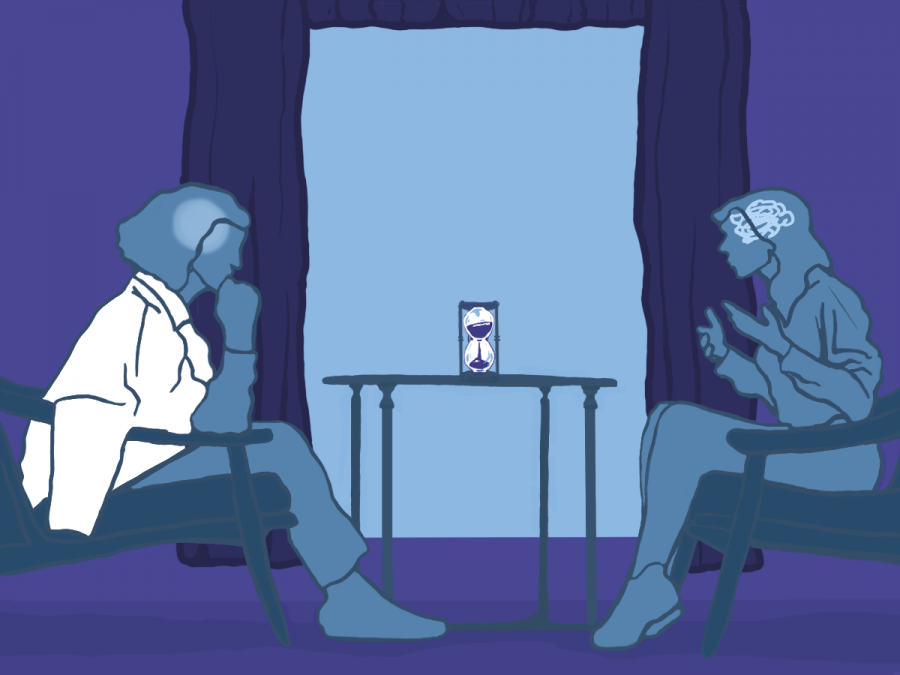Expand long-term counseling
March 29, 2021
As one of the many students who had to stay at home this year due to the COVID-19 pandemic, the fear of missing out and a lack of motivation to continue my academic studies plagued me internally as much as the pandemic did externally. But after 12 Zoom sessions of short-term therapy with the UT Counseling and Mental Health Center, I’ve really seen a difference in my mental well-being.
However, the fact that the CMHC provides no individual long-term therapy is always a concern on my mind. I will have no financial or emotional support from my family to continue telehealth therapy sessions after my allotted number of CMHC sessions.
UT must provide more funding for the CMHC to expand its individual counseling services in response to the COVID-19 pandemic and its future effects.
I’m not the only one seeking more resources from the CMHC. According to the fall 2020 Student Sentiment Survey conducted by Student Government and the Senate of College Councils, 34% of respondents requested that UT expand mental health services. Respondents cited concerns about individual session limits and limited accessibility.
The CMHC refers students to off-campus therapists for long-term individual therapy following the short-term individual sessions, but some students find it hard to get an off-campus counselor after a CMHC referral.
Undeclared sophomore Libby Brett said that she had four sessions in short-term therapy at the CMHC, after which she was referred to an off-campus provider.
“If someone is seeking counseling, they usually are looking for a long-term thing that needs time to be sorted out,” Brett said. “It’s just so hard to find someone right now.”
Many students, like myself, don’t have the resources or support to get off-campus therapy. Therapy costs, family support and insurance concerns are all factors that hold students back from receiving the off-campus support we need, which is why the CMHC must expand its therapy resources.
Since UT is receiving $48 million in federal COVID-19 relief from the Coronavirus Response and Relief Supplemental Appropriations Act, with only $15.7 million required to be used for student emergency aid, UT needs to make student mental health a priority with these funds.
Ironically, the CMHC budget for this school year is over $36,000 less than it was for the 2019-2020 school year, when COVID-19 impacted only the last few months of the 2019-2020 school year.
With an enrolled population of over 50,000 students, UT only has up to 60 counselors on staff, including trainees, said Marla Craig, the senior associate director for clinical services at the CMHC.
Though Craig said she has not seen an abnormal increase in CMHC appointments as opposed to a normal year, she acknowledges that the pandemic may have long lasting impacts on student mental health.
“It’s the side effects of the pandemic, the isolation, the loneliness,” Craig said. “The loss of (the pre-pandemic environment) is significant, and the worry of having to learn through a different format for some can be very stressful.”
Even though there has been more funding directed toward the CMHC in the past years with new positions, students still need more support.
“We’re hiring 12 additional counselors in four different areas across CMHC, and we are estimating that we’ll be able to serve an additional 1,700 students,” said Katy Redd, the associate director for prevention, development and media relations at the CMHC.
Even with an additional 12 counselors, that means there are no more than 72 counselors working with 50,000 enrolled students, with little possibility that everyone who needs help will receive it.
UT needs to show students that student mental health and well-being will always be a priority, especially during a pandemic.
Yi is a psychology freshman from Lubbock, Texas.





